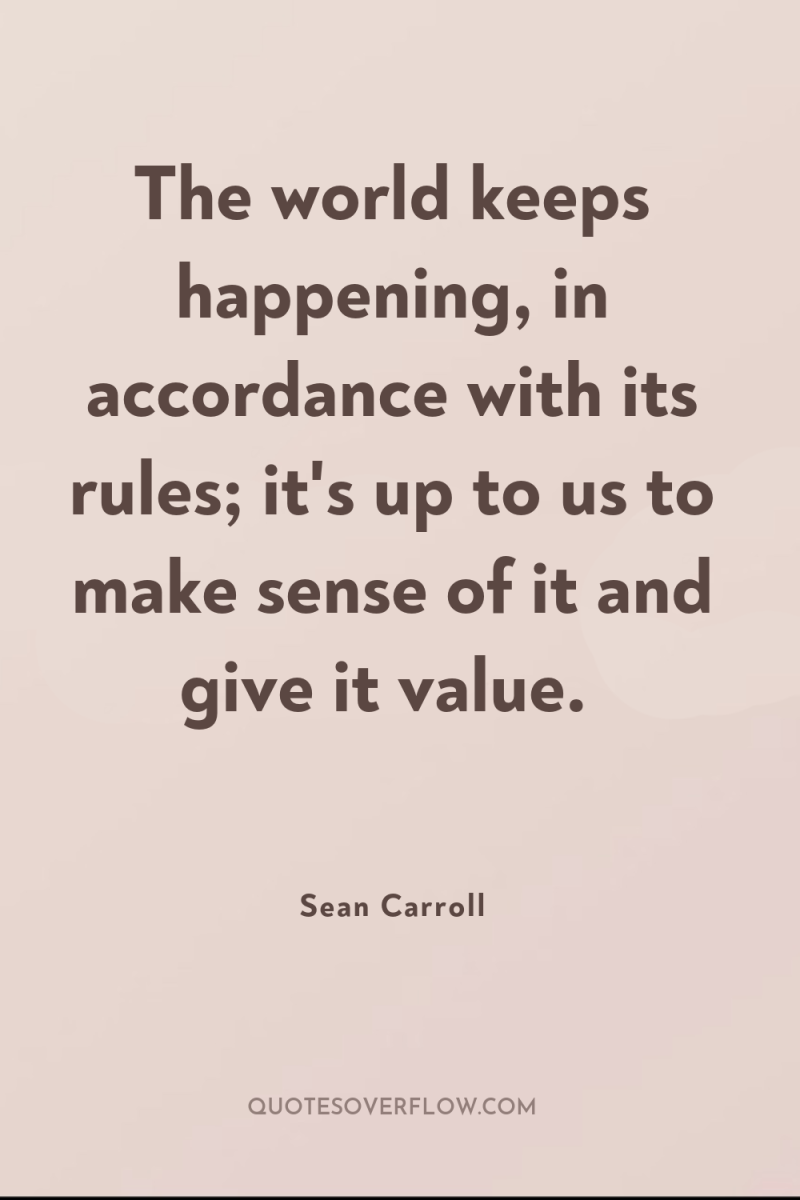
1
The world keeps happening, in accordance with its rules; it's up to us to make sense of it and give it value.Sean Carroll
2
Where misunderstanding dwells, misuse will not be far behind. No theory in the history of science has been more misused and abused by cranks and charlatans–and misunderstood by people struggling in good faith with difficult ideas–than quantum mechanics.Sean Carroll
3
Human beings are not nearly as coolly rational as we like to think we are. Having set up comfortable planets of belief, we become resistant to altering them, and develop cognitive biases that prevent us from seeing the world with perfect clarity. We aspire to be perfect Bayesian abductors, impartially reasoning to the best explanation - but most often we take new data and squeeze it to fit with our preconceptions.Sean Carroll
4
Historically, nature has been very good at surprising us.Sean Carroll
5
Science and religion both make claims about the fundamental workings of the universe. Although these claims are not a priori incompatible (we could imagine being brought to religious belief through scientific investigation), I will argue that in practice they diverge. If we believe that the methods of science can be used to discriminate between fundamental pictures of reality, we are led to a strictly materialist conception of the universe. While the details of modern cosmology are not a necessary part of this argument, they provide interesting clues as to how an ultimate picture may be constructed. .Sean Carroll
6
If an ontology predicts almost nothing it ends up explaining almost nothing, and there's no reason to believe it.Sean Carroll
7
One increasingly hears rumors of a reconciliation between science and religion. In major news magazines as well as at academic conferences, the claim is made that that belief in the success of science in describing the workings of the world is no longer thought to be in conflict with faith in God. I would like to argue against this trend, in favor of a more old-fashioned point of view that is still more characteristic of most scientists, who tend to disbelieve in any religious component to the workings of the universe.Sean Carroll
8
Way back in 1831, Michael Faraday, one of the founders of our modern understanding of electromagnetism, was asked by an inquiring politician about the usefulness of this newfangled "electricity" stuff. His apocryphal reply: "I know not, but I wager that one day your government will tax it".Sean Carroll
9
Einstein's paper on the photoelectric effect was the work for which he ultimately won the Nobel Prize. It was published in 1905, and Einstein has another paper in the very same journal where it appeared - his other paper was the one that formulated the special theory of relativity. That's what it was like to be Einstein in 1905; you publish a groundbreaking paper that helps lay the foundation of quantum mechanics, and for which you later win the Nobel Prize, but it's only the second most important paper that you publish in that issue of the journal.Sean Carroll
10
The world is not magic – and that’s the most magical thing about it.Sean Carroll